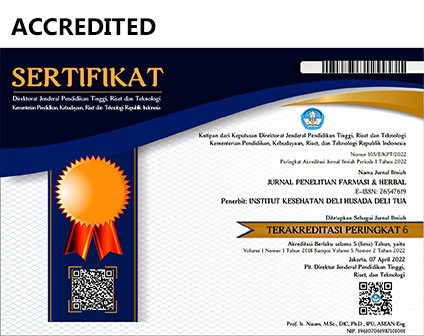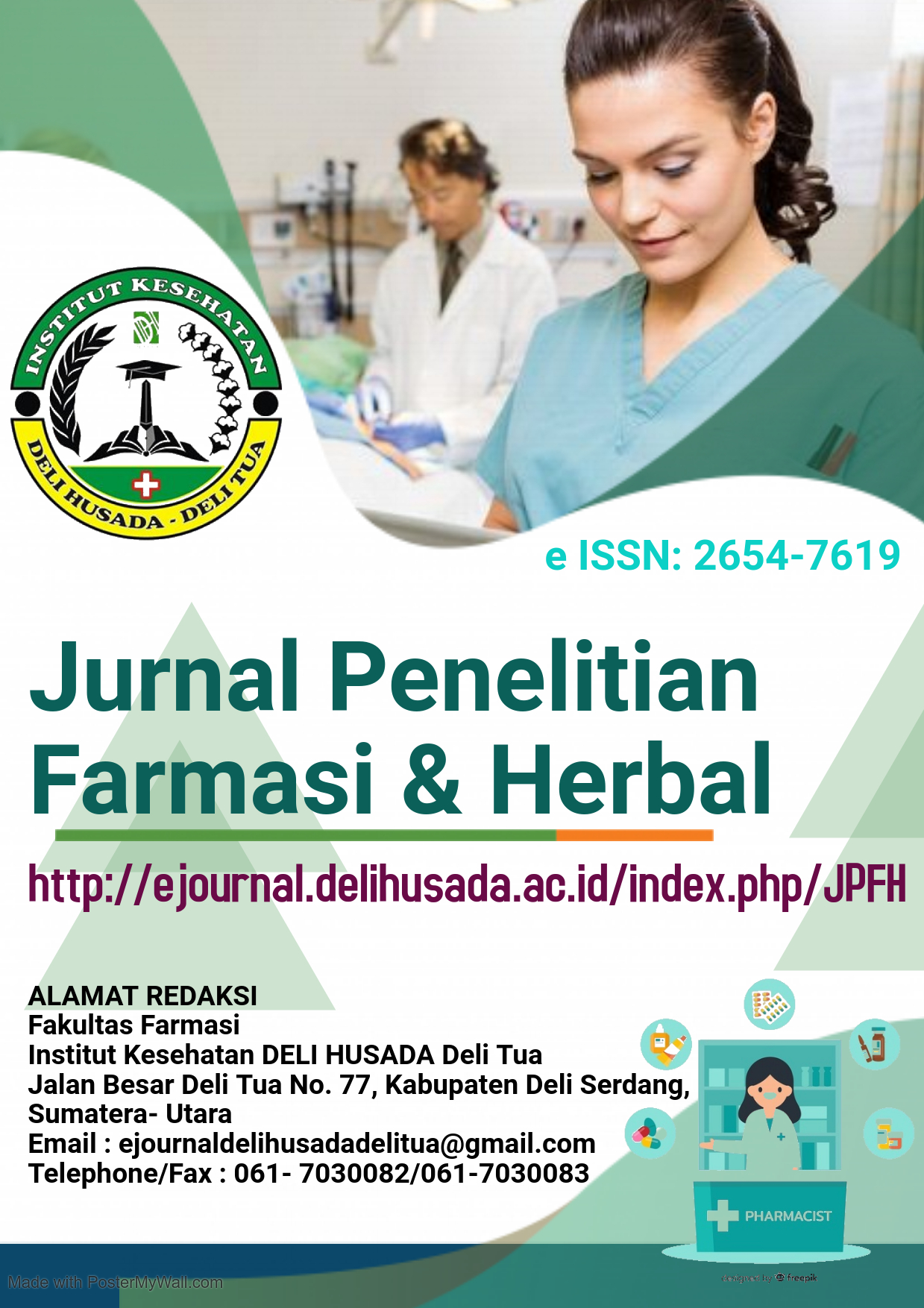PERBANDINGAN SEDIAAN SIRUP ANTIDIARE EKSTRAK DAUN SAWO (Manilkara zapota L.) DENGAN SEDIAAN SIRUP ANTIDIARE DI PASARAN TERHADAP MENCIT PUTIH (Mus musculus L.)
Abstract
Background: the Sapodilla leaves (Manilkara zapota L.) contain chemical compounds of tannins and flavonoids which have antidiarrheal activity. Tannins are astringent and flavonoids inhibit intestinal motility which can reduce fluid and electrolytes. Methods: This purpose research is to determine the effectiveness and comparison of sapodilla leaf extract syrup with Diapet Kids syrup as antidiarrheal against white mice induced by castor oil. The research used experimental method, the sample was macerated using 70% ethanol as solvent. The thick extract was formulated in syrup dosage form, and stability test was carried out. The syrup doses used were 60 mg/kg BW, 90 mg/kg BW, and 120 mg/kg BW, syrup without extract as a negative control and Diapet Kids syrup as a comparison syrup. The effectiveness of antidiarrhea was carried out by using the diarrhea protection method for 6 hours and comparing the effectiveness of the sapodilla leaf extract syrup with the Diapet Kids syrup. The results of research : is showed that the stability of sapodilla leaf extract syrup met the standard requirements. The data analysis using one way ANOVA then continued with Tukey HSD test. The antidiarrheal activity of sapodilla leaf extract syrup at 90 and 120 mg/kg BW and Diapet Kids syrup have significant different with positive control and syrup of sapodilla leaf extract at 60 mg/kg BW dose (p < 0.05). The comparison of syrup of sapodilla leaf extract dose of 120 mg/kg BW with syrup Diapet Kids was not in significantly difference (p > 0.05). The Sapodilla leaf extract syrup at 90 and 120 mg/kg BW had antidiarrheal activity and Sapodilla leaf extract syrup at 120 mg/kg BW had no significant difference with Diapet Kids syrup (p > 0.05).







